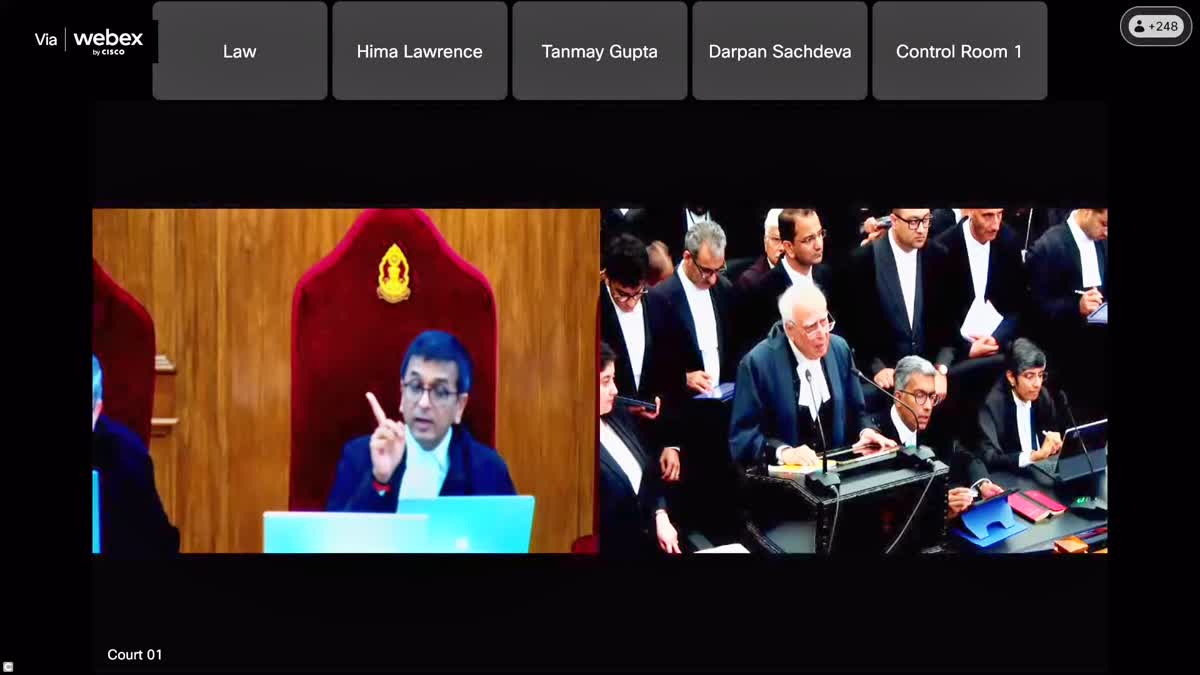New Delhi: The Supreme Court Thursday told senior advocate Kapil Sibal that whether Article 370 of the Constitution has acquired a permanent feature is debatable.
A five-judge bench headed by Chief Justice of India D Y Chandrachud and comprising justices S K Kaul, Sanjiv Khanna, B R Gavai, and Surya Kant, is hearing a batch of petitions challenging the abrogation of Article 370, which bestowed special status on the erstwhile state of Jammu and Kashmir.
On the second day of hearing, Justice Kaul queried Sibal, “there is one submission that Article 370 has acquired the permanent feature of the Constitution that is a debatable issue….next is suppose it is not permanent then what is the manner of abrogating Article 370….procedure to be followed. These are only two issues…”
Sibal said, “I will try and convince you that it is permanent…your lordships say it is debatable, it is debatable. There is no doubt about it”.
Kaul said debatable means both sides will argue the case, and the debate will also be there, whether the procedure has been followed or not followed.
Sibal agreed and the court would have to look at the constitution of Jammu and Kashmir, which was framed and cleared in 1957, and if the Parliament takes over under Article 356, President’s rule, and declares an emergency and it can only exercise the part of a legislature and then cited provisions of J&K constitution to give an idea why Article 370 is permanent.
The Chief Justice observed that Sibal is correct in pointing out that the constitutional practice followed has been to selectively apply the provisions of the Constitution to J&K. Justice Chandrachud further pointed out that it was never treated as if all provisions are to apply and the court needs to hear the Attorney General of India on this aspect of law.
Justice Kaul told Sibal, “the only issue is whether it acquires a permanent character, which cannot be touched and whether there is a methodology, right or wrong ( in connection with abrogation of Article 370)... .this is first part of your argument”.
Senior advocate Gopal Sankaranarayan, representing one of the petitioners, said Article 370 is in three parts: first part of our argument is it continues always, it is transitory because it deals with what happens before the constituent assembly comes in and constituent assembly has to ratify it, and it is temporary while the constituent assembly is there.
Sibal submitted that the Constitution (Application to Jammu and Kashmir) Order, 1954 was promulgated when the constituent assembly was still in existence, they could have abrogated Article 370, if they wanted to. Sibal said, “They had a choice. They could have said no, we wish to abrogate 370 and be part of India like any other state. The assembly was constituted in 1951….”.
The hearing is in progress.



